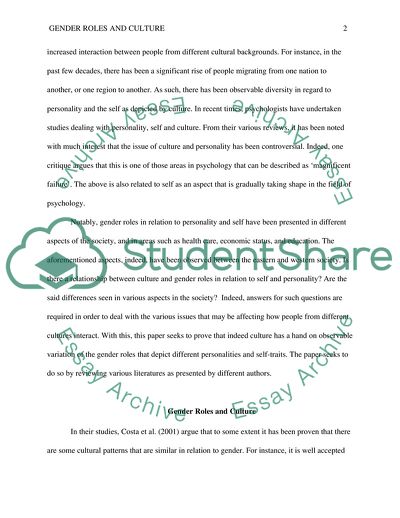Cite this document
(Gender Roles and Cultures in Regard to Personality and Self Literature review Example | Topics and Well Written Essays - 1250 words, n.d.)
Gender Roles and Cultures in Regard to Personality and Self Literature review Example | Topics and Well Written Essays - 1250 words. https://studentshare.org/psychology/1810442-cultural-psychology
Gender Roles and Cultures in Regard to Personality and Self Literature review Example | Topics and Well Written Essays - 1250 words. https://studentshare.org/psychology/1810442-cultural-psychology
(Gender Roles and Cultures in Regard to Personality and Self Literature Review Example | Topics and Well Written Essays - 1250 Words)
Gender Roles and Cultures in Regard to Personality and Self Literature Review Example | Topics and Well Written Essays - 1250 Words. https://studentshare.org/psychology/1810442-cultural-psychology.
Gender Roles and Cultures in Regard to Personality and Self Literature Review Example | Topics and Well Written Essays - 1250 Words. https://studentshare.org/psychology/1810442-cultural-psychology.
“Gender Roles and Cultures in Regard to Personality and Self Literature Review Example | Topics and Well Written Essays - 1250 Words”. https://studentshare.org/psychology/1810442-cultural-psychology.


